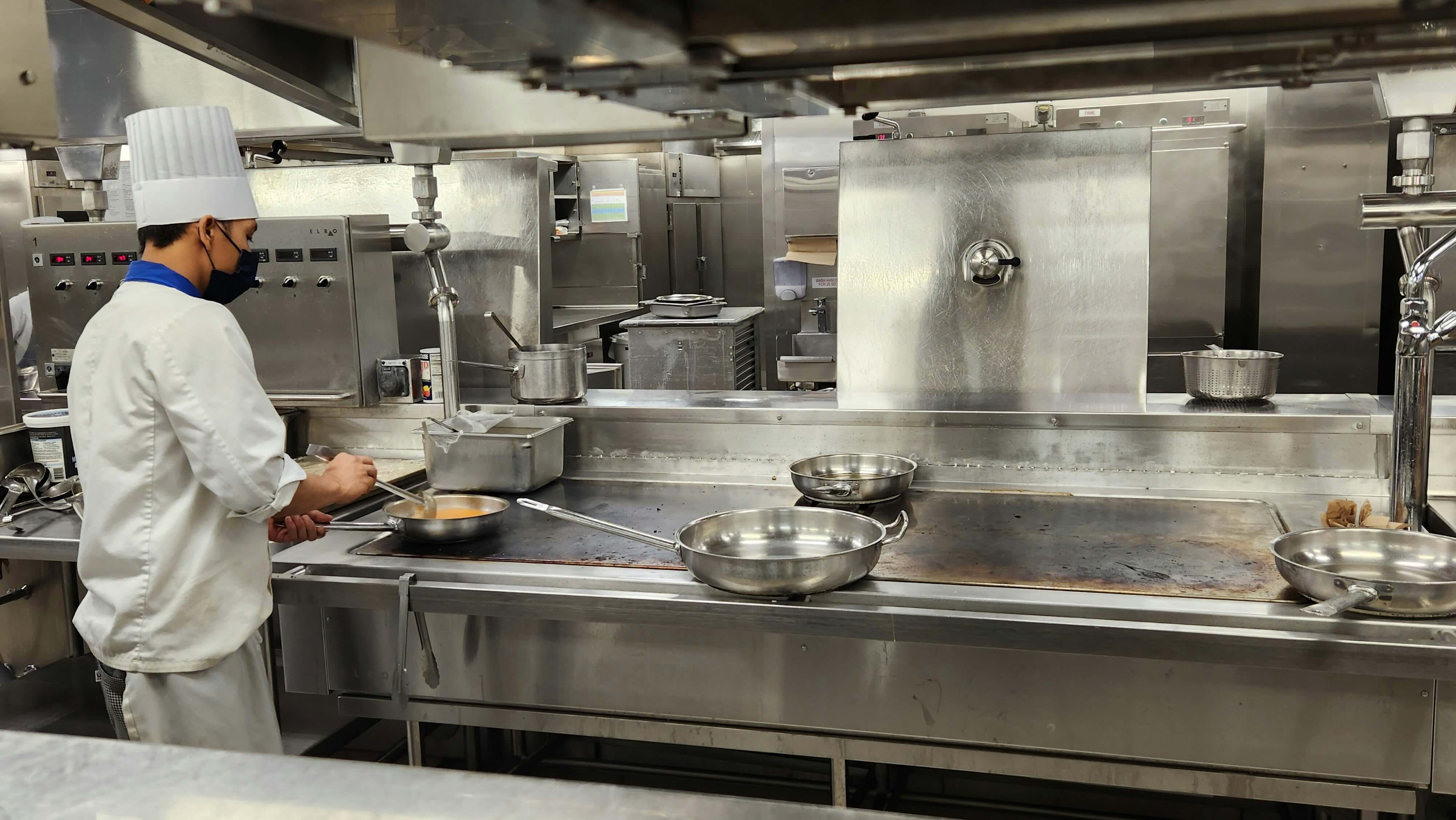
AI & Food Waste
Artificial Intelligence food waste solutions are transforming operations, helping kitchens reduce waste by 50-70% through smart tracking, predictive analytics, and automated insights. Here's how AI food waste reduction technology is revolutionizing kitchen operations—and why early adopters are achieving dramatic results.

Food waste costs the US economy $218 billion annually (checkout the latest ReFED Food Waste Report), with commercial kitchens contributing significantly to this staggering loss. But artificial intelligence food waste solutions are transforming operations, helping kitchens reduce waste by 50-70% through smart tracking, predictive analytics, and automated insights.
Here's how AI food waste reduction technology is revolutionizing kitchen operations—and why early adopters are achieving dramatic results.
The Problem: Traditional Waste Tracking Fails
Most kitchens still depend on manual waste logs, spreadsheets, and periodic audits. This outdated approach misses critical opportunities:
- Real-time waste patterns that enable immediate operational adjustments
- Root causes of overproduction and spoilage across menu items
- Procurement optimization based on actual consumption data
- Staff engagement through actionable, timely feedback
Without continuous visibility, waste reduction efforts plateau while valuable food continues reaching dumpsters instead of diners.
How AI Transforms Waste Management
Computer Vision for Automatic Recognition
AI food waste reduction platforms use advanced computer vision to:
- Identify and categorize wasted items without manual input
- Measure waste volumes accurately without scales or weighing
- Track patterns across menu items, shifts, and seasonal periods
- Eliminate compliance issues plaguing manual logging systems
For example, StreamLine's AI-powered recognition achieves 95%+ accuracy in waste identification while reducing staff workload.
Predictive Analytics for Demand Forecasting
Food waste AI technology analyzes historical data to:
- Predict actual demand more precisely than traditional forecasting methods
- Account for variables like weather patterns, campus events, and seasonal trends
- Recommend optimal batch sizes for individual menu items
- Alert teams to potential overproduction before prep begins
Real-Time Optimization Recommendations
Modern AI systems deliver:
- Dynamic recipe adjustments based on current inventory levels
- Smart prep scheduling that minimizes spoilage risk
- Automated expiration alerts for time-sensitive ingredients
- Personalized insights tailored to different kitchen roles and responsibilities
Environmental Impact Beyond Cost Savings
Food waste AI technology delivers measurable environmental benefits that support ESG goals:
- Carbon footprint reduction: Every pound of prevented food waste saves 3.3 pounds of CO2 equivalent emissions (EPA Food Recovery Hierarchy)
- Water conservation: Food production consumes 21% of US freshwater resources (USDA Water Use in Agriculture)
- Landfill diversion: Organic waste reduction significantly decreases methane emissions from decomposition
These metrics help organizations demonstrate concrete progress toward sustainability commitments while improving operational performance.
Implementation Success Factors
When evaluating AI food waste reduction platforms, prioritize:
- Seamless integration with existing kitchen workflows and management systems
- Intuitive interfaces that encourage rather than burden staff adoption
- Real-time dashboards providing immediate operational insights
- Customizable alerts matching different operational needs and schedules
- Comprehensive reporting supporting both internal management and external sustainability communication
Successful implementations focus on user experience—making waste tracking easier and more valuable, not more complex.
The Future of AI in Foodservice Operations
Artificial intelligence food waste technology continues advancing with:
- Deep integration with inventory management and procurement systems
- Predictive maintenance capabilities for kitchen equipment
- Dynamic menu optimization based on real-time ingredient availability
- Automated ordering adjustments preventing overstock situations
Early adopters aren't just reducing waste—they're building sustainable competitive advantages through comprehensive operational intelligence.
Final Takeaway
AI food waste reduction represents more than environmental responsibility—it's operational excellence that drives measurable business results. Kitchens implementing AI-powered solutions achieve cost savings, efficiency improvements, and team engagement around shared sustainability goals.
The technology exists and delivers proven results. The question isn't whether to implement artificial intelligence food waste solutions—it's whether you can afford to operate without them while competitors gain operational advantages.
Ready to see how AI transforms your waste management approach? Schedule a StreamLine AI demo.
.svg)
.png)


